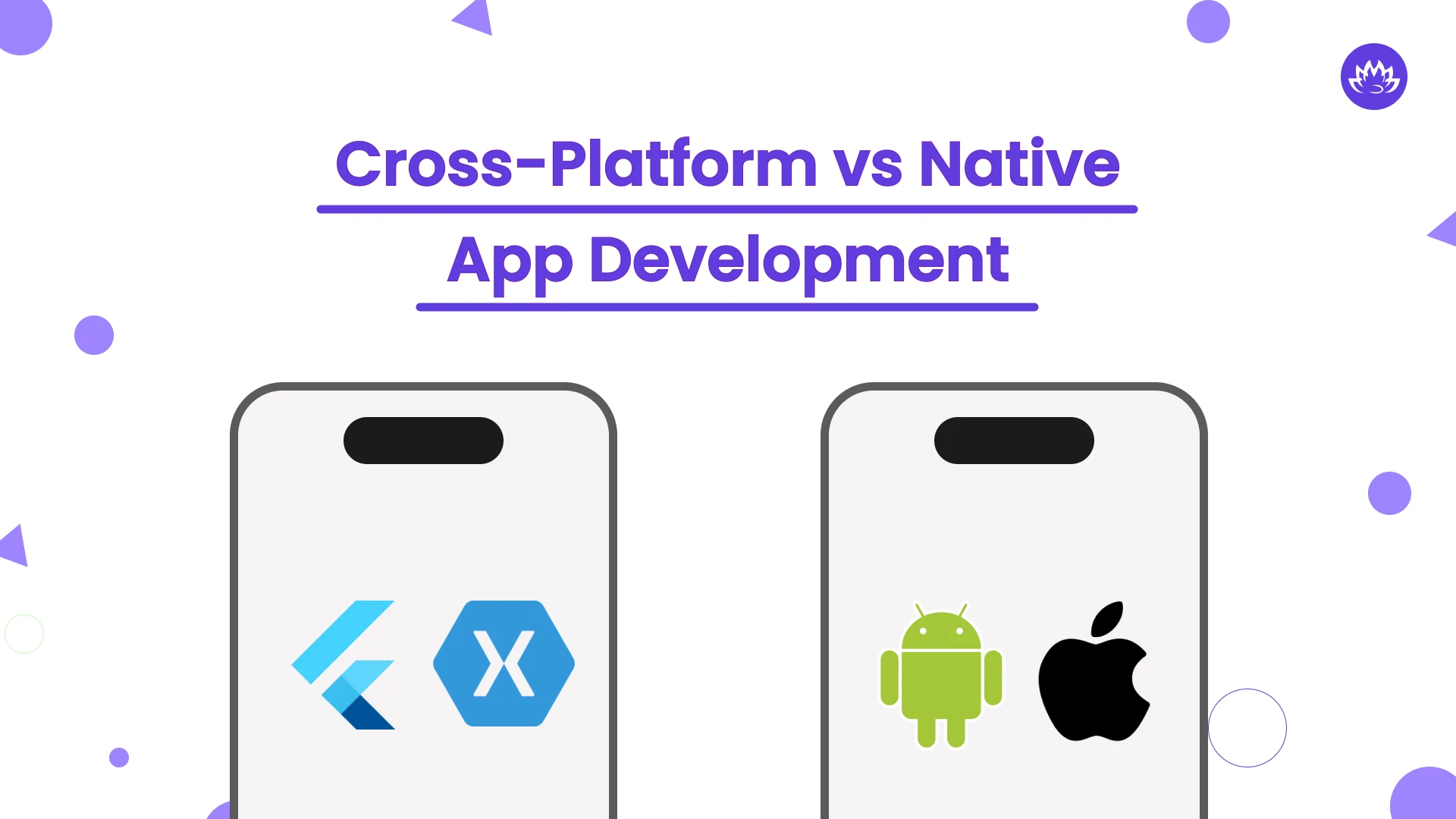Banks now want to modernize their services and make them more customer-centric. Fintech can brilliantly do that. It can handle changing customer demands and transform financial businesses into tech-friendly hubs. That is why several startups choose fintech solutions as a profitable business.
Fintech can equally impact banking products and services. It has set a phenomenal benchmark in providing security, efficiency, and utmost customer satisfaction, with a global investment of around $45.5 billion by 124,000 companies. As an experienced fintech app development company, we provide robust fintech software solutions to empower business owners with fintech software solution trends. Our expertise is more in creating banking software, CRM platforms, and loan automation.
The blog covers various facets of Fintech app development and its incredible influence on the banking sector. You will find the benefits of banking-fintech collaboration and how it is changing the banking industry’s approach. So, let’s dive in.
What is Fintech?
FinTech is an abbreviation for ‘financial technology,’ which refers to using technology to improve, automate, and deliver new financial services.
It is used to help banks, financial institutions, businesses, and consumers better manage their finances, processes, and lives. Financial services and technology inspire startups to leverage digital technology to develop novel financial goods and services, such as mobile payments, big data, online banking, alternative finance, peer-to-peer lending, and crowdfunding. Fintech industry revenues are expected to surge upto 3x more rapidly than that of the traditional banking sector.
There are four main types of fintech services, each of which can offer banks advantages and challenges. We have explained them in brief below:
- The first category includes payment processing and money transfers. This sort of fintech enables users to make payments and transfer funds on time and securely. Fintech businesses assist banks in providing their clients with a more comfortable and secure payment experience and speedier money transfer options.
- The second fintech category is investing, which involves trading stocks, ETFs, bonds, mutual funds, hedge funds, etc. Banks may use this technology to help consumers better manage their investments and navigate the intricacies of these marketplaces.
- The third fintech service is loan origination, which allows banks to streamline the loan-originating process. This technology enables users to apply for loans online and receive approval in minutes rather than days or weeks.
- The fourth sort of fintech service is wealth management, which involves asset allocation and portfolio optimization. This technology enables banks to provide better advice and more personalized investment options based on their customers’ needs.
Fintech is transforming the banking industry and posing new challenges to traditional banking methods. It also allows banks to provide new goods and services suited to their customers’ demands. Banks must adopt fintech or risk falling behind in an increasingly digital world.
Benefits Fintech Software Solutions Can Provide to Banks
Banks can smartly leverage the power of Fintech services in the most appropriate manner. It can become a win-win situation for both fintech companies and the banking industry. A smart collaboration with a reputed software development company can help your banking business grow and excel. The benefits can be phenomenal.

Higher Efficiency
FinTech in the banking business allows them to harness each other’s capabilities to expedite processes, automate operations, and increase overall operational efficiency. FinTech can help banks gain access to advanced technologies. Banks can provide FinTech startups with the regulatory expertise and client base they need to grow their operations.
Access to Latest Technologies
Collaboration between FinTech and banks enables both sides to access and implement cutting-edge technology. Banks can profit from FinTech’s innovation and flexibility, and fintech companies can use traditional banks’ resources and infrastructure to broaden their reach and influence.
Cost Effectiveness
Banks and FinTech companies can form strategic collaborations to reduce the cost to build fintech app and implement new technology. After cost-cutting, these savings can be passed on to customers in the form of cheaper fees and more competitive product choices. An obvious example is the incorporation of automated chatbots into customer support services. This not only improves request response time but also dramatically minimizes the requirement for manual support.
Such economic efficiency increases banks’ financial position and allows them to allocate resources toward improving other parts of their services and technological infrastructure.
Improved Security
FinTech organizations frequently stress security and data protection since financial transactions are sensitive. Banks collaborating with FinTech can improve their security measures, minimize cyber threats, and secure their clients’ sensitive information.
The implementation of biometric authentication, like fingerprint recognition, has proven a powerful protection against unwanted access. Clientes remain confident in the security of their financial transactions and demonstrates the bank’s commitment to providing a trustworthy environment.
Enhanced Customer Experience
Fintech startups have revolutionized the financial services market by taking an innovative approach to client experience. They are known to be faster, cheaper, more efficient, and safer than traditional banks. Many fintech companies have earned their consumers’ trust by providing great service and acquiring clients through referrals. Banks can follow FinTech’s customer-centric strategy. This can result in greater service for consumers, increasing their trust and loyalty to the bank.
More Transparency
FinTech companies are frequently praised for their dedication to transparency, which could have a positive impact on the financial industry. Banks can collaborate with FinTech to provide more transparent practices, such as explicit charge structures, freely available account information, and interest calculations. This ultimately leads to better customer trust.
Enhanced Accessibility
Fintech removes geographical restrictions, making banking more accessible than ever before. The introduction of mobile banking applications, which provide twenty four by seven access to account information and services, exemplifies this accessibility. These programs offer a streamlined and convenient money management solution regardless of the user’s location.
That means banks are responding to changing customer expectations and increasing their reach. Their services are no longer limited by geography; users can access them from any corener of the world.
Improved Branding
The impact of fintech on banking can be beneficial to their brand image. Banks can position themselves as forward thinking and customer-centric financial institutions by encouraging innovation and demonstrating their dedication to technology improvements. This allows banks to recruit a new generation of technologically savvy customers.
How Fintech is Changing Banking Services From the Core?
As you now know the real benefits of banking and fintech collaboration, let us understand how fintech is transforming banking services and making it better, more accessible, and tech friendly for all kinds of users. The present decade is watching the biggest tech shift in the banking industry through the impact of fintech solutions. You can hire skilled developers from a fintech development company to create dynamic fintech solutions for your banking business.

E-Wallets and Mobile Banking
E-wallets have revolutionized the way people pay. Digital payments with improved features have made payments faster, safer, and more convenient. E-wallets are having a favorable impact on the banking industry because they are the most common form of digital payment. To add funds to the wallet, users must first provide their bank account data, which results in an increased customer base for banks as well.ies to expedite processes, automate operations, and increase overall operational efficiency. FinTech can help banks gain access to advanced technologies. Banks can provide FinTech startups with the regulatory expertise and client base they need to grow their operations.
Smartphones are being used increasingly, and banks are now inclined to launch mobile applications that can offer convenient banking services powered by Fintech solutions. Today, most banks have a mobile app that is an easy-to-use interface, the ability to provide nearly every service accessible in traditional banks, and advanced security features, such as fingerprint and facial recognition. Banks now need to collaborate with a well-established mobile app development company to create robust and highly secured mobile applications for their massive group of users.
Artificial Intelligence
AI in fintech industry has provided AI-powered solutions that can alter the banking and financial sectors. FinTech companies are using AI to:
-
Automate and streamline operations.
-
Offer tailored financial guidance.
-
Detect fraud or security breaches.
-
Enhance customer service.
As a result, using AI and machine learning in financial services can assist banks in automating procedures, preventing fraud, and obtaining thorough insights to make informed decisions.
Democratization of Financial Services
FinTech has played a critical role in democratizing financial services, that makes them more accessible to a broader spectrum of individuals and enterprises. FinTech uses digital platforms and mobile technology to lower the barrier to entry into the financial system, enabling unbanked or underserved potential clients to readily access financial services.
Data Analytics and Personalization
FinTech companies use data analytics to give customers highly tailored and innovative financial goods and services. The FinTech apps’ powerful analytics function enables them to study client behavior, spending trends, and credit history. Using this data, FinTech companies can provide individualized solutions to their clients. Banks can also benefit from adopting FinTech solutions!
Smart Chip Technology
Smart chip technology, often known as EMV (Europay, MasterCard, and Visa), has tremendously impacted the banking sector. One of the most visible effects is the greater security of financial transactions. These chips generate unique codes for each transaction, making it impossible for fraudsters to gain unauthorized access.
Biometric Sensors
FinTech has revolutionized the banking system with its biometric sensors feature. Almost all of the top fintech predictions and trends highlight this breakthrough. Today, biometric sensors can be used in financial services such as mobile banking, internet payments, and ATM withdrawals. These sensors enable increased security, convenience, and lower fraud risks in the banking sector.
Financial Inclusion
FinTech can promote financial inclusion by giving unbanked and underprivileged people access to basic financial services. FinTech firms enable banks to access more consumers (banked or unbanked) worldwide by offering mobile banking, cross-border remittance, and agency banking solutions.
Regulatory Landscape
FinTech’s AI-powered capabilities and security features can easily meet all regulatory compliance and security requirements. So, when banks engage with FinTech, the regulatory landscape becomes less complex and easier to navigate.
Conclusion
Fintech technologies have transformed the banking industry, giving banks higher efficiency, cost savings, improved security, a better client experience, increased transparency, accessibility, faster payments, and other benefits. Banks must adopt these technologies to remain competitive in the digital age and fulfill the changing needs of their consumers. Investing in fintech technologies and implementing digital strategies are critical for banks to stay competitive and grow in a changing environment. At Whitelotus Corporation, we have extensive expertise in starting and building numerous fintech initiatives from the beginning. We understand just how to consult you at each level of your project. Schedule a free appointment with our expert to learn more.
Author
-

Sunil is a result-orientated Chief Technology Officer with over a decade of deep technical experience delivering solutions to startups, entrepreneurs, and enterprises across the globe. Have led large-scale projects in mobile and web applications using technologies such as React Native, Flutter, Laravel, MEAN and MERN stack development.
View all posts













